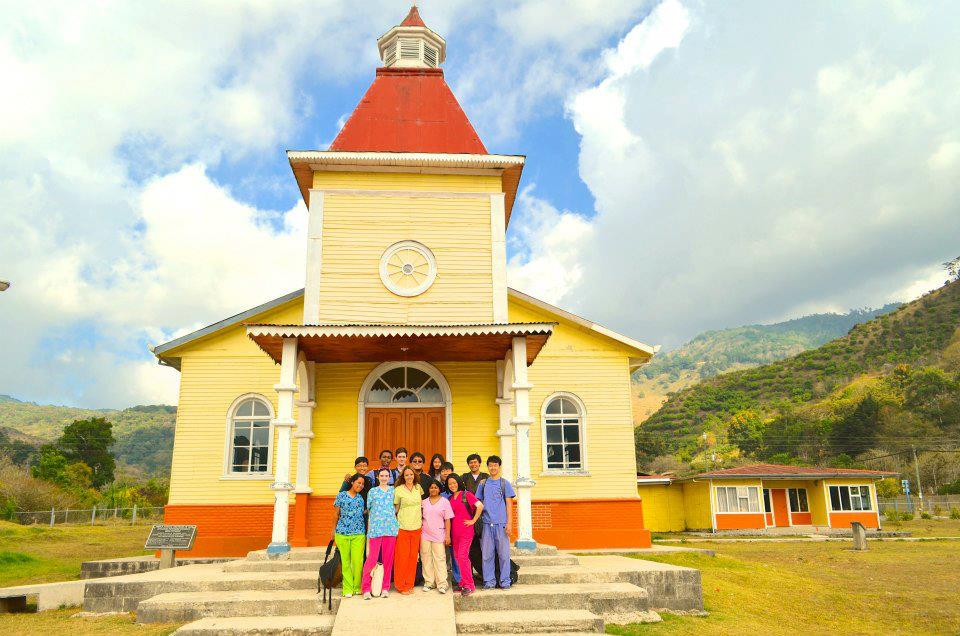Why do I need the TEFL/TESOL Certification?
Language teaching is a challenging job that not everyone can pick up naturally. It requires creativity, patience, and knowledge of language-learning theory and language-teaching techniques. Knowing English is insufficient if you plan to teach English in South America, Central America, Asia, Europe, or anywhere else in the world. Schools and institutes are demanding qualifications, experience, and practical training in the methodology of teaching English. An accredited certificate is now a prerequisite to teach at the best English schools.
What will I learn?
This Certification program will show you how to effectively teach English to non-native speakers, and will equip you with the tools needed to be successful in the ESL classroom. You will come away from the training with a thorough grounding in both the theoretical and practical concepts required to teach real-life language skills, including: Speaking, Reading, Writing, Listening, Grammar, Vocabulary, and Pronunciation.
How will I be assessed?
Participants are continually assessed. There are no written examinations, but there are 2 required academic papers and a professional portfolio. Class attendance is required. Final assessment is based on the following:
- Class Participation - 20%
- Student Teaching - 50%
- Written Work and Portfolio - 20%
- Lesson Plans - 10%
Upon completion, successful candidates are awarded grades as follows:
- Pass/Excellent
- Pass/Good
- Pass/Satisfactory
- Fail
What pass rate do you have?
Even though it is an intensive and challenging program, the majority of our participants (around 95%) pass the course. Overall, 60% are awarded a grade of Pass/Good, 30% receive a grade of Pass/Satisfactory and 5% receive a grade of Pass/Excellent.
Does the TEFL Certificate qualify me to teach English?
Yes. Your training will give you a major advantage over untrained teachers because you have declared your commitment to the field and to being a professional ESL teacher. Whether you want to work in South America, Central America, Asia, Europe, the Middle East, or anywhere else in the world; this Certification will open doors to rewarding employment opportunities.
Are there really teaching jobs?
Yes, there are. The whole world wants to learn English. People everywhere, especially young people, are convinced that speaking English is their passport to a successful career. Worldwide, there are many more ESL jobs than there are native-speaking ESL teachers to fill them. Native English-speaking teachers are in high demand in every part of the world, English teaching jobs can be found in every country and in virtually every region of the world – South America, Central America, Asia, Eastern/Central Europe, and Western Europe. There is also strong demand for professional instructors in English-speaking countries such as the U.S., UK, Australia, New Zealand, and South Africa.
Can I make a real career out of teaching English?
Yes. There are many opportunities for long-term permanent positions and even for advancement to Director of Studies and other administrative and executive positions. Other possibilities are teacher training and materials and curriculum development.
Is it necessary to speak a foreign language?
We do NOT require a second language to study for the certification nor is it a requirement to teach. That said, some experience learning and speaking a foreign language will help you understand language in general and how people learn it.
Are there any age limits?
You must be at least 18 years old to study for the Certification. Generally speaking, ESL teachers range in age from 18 to 80, although it is more difficult to find employment if you are under 21 and over 50; but not impossible. Preferred age depends very much on the country, the culture, the school, and the type of students the school has; and legal requirements may also play a part. Some schools prefer more mature teachers, especially if their students are primarily business people. Others feel that younger teachers are more "dynamic" and "modern" in their approach. While still other countries are so desperate for teachers that age is irrelevant. Also, some countries will not issue a work visa for teachers over 45 years of age.
What if English is not my native language?
We DO accept non-native English speakers.
However, you must provide proof of proficiency in English (i.e. TOEFL, IELTS, Michigan exams) and pass an oral interview before being accepted on to the course.
Generally speaking, if you have a 4 week certificate, not being a native speaker should not be a major problem.
Do I need a university degree?
We do not require a college degree to enter our certification program. In most countries, the most important qualification is the certificate itself. However, you might find some resistance by employers if you do not have at least a 2-year college degree. As well, especially in Asia and the Middle East, a work permit will not be granted if you do not have at least a bachelor's degree. That being said, with a certificate, it is certainly possible to find work without a university degree, especially in South America and other developing regions.
Do I have to get a work permit and residence visa?
Depending on where you are from you may or may not need a special visa. Most people, including those from the United States, Canada, Australia, New Zealand, and Europe, automatically receive a 90-day tourist visa when entering Guatemala. To work legally in a foreign country you need a work permit, with which you can then get a resident visa.
What about medical insurance?
Before you travel make sure that you are covered by medical insurance in case of accidents or emergencies. There are a number of companies specializing in international travel insurance, contact us for more information.
What should I bring?
The key to packing for Guatemala is to prepare for a warm and sometimes humid climate. The coastal areas are steamy and hot with lots of sunshine; La Antigua is warm by day and cool by night with intermittent sunshine and rain.
SUGGESTED PACKING LIST – GUATEMALA
- Teaching clothes†
- Day pack
- Comfortable walking shoes or hiking boots
- Sandals
- 2 pairs of pants (lightweight)
- 2 T-shirts
- 3 short-sleeved shirts
- 1 long-sleeved shirt
- 3 pairs of shorts and bathing suit
- Hat or cap
- Towel and personal bath kit
- Sun block, sun glasses
- Camera
STUDY MATERIALS
- Laptop computer (if possible)
- Notebook and pen
- Spanish-English dictionary
How much extra money should I bring?
Extra money depends on your personal spending habits. You will likely want extra money for personal expenses, sight-seeing, souvenirs, etc. Generally speaking, we recommend bringing about $ 250.00 USD per week, or just bring your credit card. Note, traveler's checks in Guatemala tend to be problematic to use and are NOT recommended. The best method for getting money is to simply use ATMs. Most banks in Latin America offer 24-hour ATM access.
Do I need a Visa to enter Guatemala?
Depending on where you are from you may or may not need a special visa. Most people, including those from the United States, Canada, Australia, New Zealand, and Europe, automatically receive a 90-day tourist visa when entering Guatemala.
Will I have phone and Internet access?
Yes, our students have free access to our computer centers with high speed internet and Wi-Fi connections; and all the computers run Windows and Microsoft Office. Access to our offices and Internet facilities are available 7 days a week.
Is the water safe to drink?
No. Tap water can be purified by boiling it or adding purification tablets, such as Micropur, which can be purchased at most pharmacies. Generally speaking, bottled water is easy to buy in stores. Showering and brushing your teeth with water is rarely a problem.
Do I need vaccinations?
It is recommended that travelers to Guatemala have vaccinations for Hepatitis A and Tetanus. Typhoid, Yellow Fever is sometimes recommended, but is not necessary. Other immunizations may be necessary depending upon the circumstances of your project and personal medical history. You should visit a travel-health clinic or your physician at least four weeks before traveling.
Should I bring any medicine?
It is recommended that you bring medications for travelers' diarrhea. The best way to prevent traveler's diarrhea is to be careful of the food and water that you eat and drink.
Is Guatemala a safe country?
It can be as safe and unsafe as any other city in the world. That being said, it's still important to use common sense.
- Be careful if traveling on buses, as petty theft is common.
- Ask for a receipt when you store your backpack or luggage.
- Do NOT carry your passport or any credit cards and cash that you will not need.
- Use only registered taxis.
- Do not walk into unknown areas by yourself at night.
- Avoid any contact with drugs, as laws are very strict.


 ITTO School's Map
ITTO School's Map MEXICO
MEXICO Guadalajara
Guadalajara Puerto Vallarta
Puerto Vallarta Chiapas
Chiapas Playa del Carmen
Playa del Carmen ARGENTINA
ARGENTINA Buenos Aires
Buenos Aires ITALY
ITALY Florence
Florence CANADA
CANADA Toronto
Toronto Vancouver
Vancouver CHINA
CHINA Shanghai
Shanghai COSTA RICA
COSTA RICA Manuel Antonio
Manuel Antonio Playa Samara
Playa Samara CZECH REPUBLIC
CZECH REPUBLIC Prague
Prague FRANCE
FRANCE Toulouse
Toulouse GUATEMALA
GUATEMALA Antigua
Antigua PERU
PERU Cusco
Cusco SPAIN
SPAIN Barcelona
Barcelona Madrid
Madrid THAILAND
THAILAND Chiang Mai
Chiang Mai USA
USA New York
New York Chicago
Chicago Miami
Miami Online TEFL Programs
Online TEFL Programs Compare Course Features
Compare Course Features

























